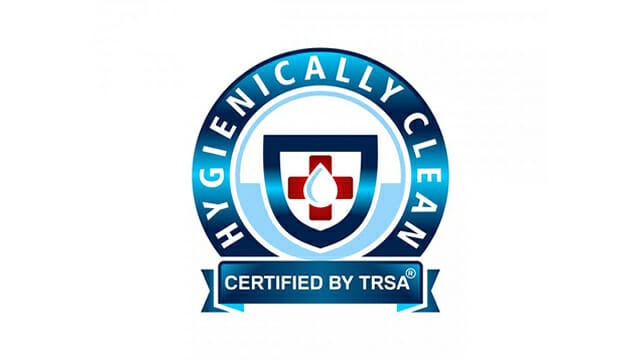Hygienically Clean: Additional Reassurances in Supplying Essential Businesses

Long before COVID-19 became a pandemic, Hygienically Clean-certified facilities serving acute and nonacute healthcare, food processing and food service organizations were properly trained to meet the safety needs of customers, employees and the public. In recent weeks as the pandemic has spread, Hygienically Clean has continued to provide up-to-date resources that inform and help properly educate employees and customers.
As state guidelines for combating the spread of this virus unfold, linen, uniform and facility services companies have been consistently recognized as “essential services” supporting the nation’s critical infrastructure such as safety, sanitation and operations including healthcare, first responders, food and agriculture, energy, water and wastewater, transportation and logistics, public works, communications and information technology, and other community-based essential functions and government operations.
The Hygienically Clean website at www.hygienicallyclean.org has been updated with a wealth of resources covering the specifics of the COVID-19 pandemic including:
- Webinars, including communication of best practices for employees, customers and leadership teams, led by experts such as Catalina Dongo, director of human resources, UniFirst Corp.; Todd Logsdon, partner, Fisher & Phillips LLP; and Hygienically Clean Advisory Board Member Murray L. Cohen, PhD, MPH, CIH, FAIHA, chairman, Frontline Healthcare Worker Safety Foundation and retired infectious disease epidemiologist, U.S. Centers for Disease Control and Prevention (CDC) and World Health Organization (WHO).
- Both the Six Cs of Handling Soiled and Clean Linens in a Healthcare Environment Training (videos).
- Posters, handouts and other print and digital (in English and Spanish) to be shared with leadership teams, employees and customers.
- Links to dozens of resources, including state-by-state essential services designations and frequently asked questions (FAQs), human resources and legal guidance from global and national government agencies such as the WHO, CDC, DOL, SBA and more.
Hygienically Clean values the voice of its members and relies on continuous communication to rapidly educate and prepare its certified facilities of quickly evolving issues like COVID-19. Regularly scheduled users group and advisory board calls are taking place as the pandemic progresses, providing Hygienically Clean-certified laundries with valuable sharing of resources such as best-management practices (BMPs), quality-assurance (QA) manuals and standard operating procedures (SOPs) for combating COVID-19.
The coronavirus has heightened our awareness of handwashing and sanitizing hard surfaces. Every facility that has earned the Hygienically Clean certification, 223 across all markets, has been inspected to OSHA regulations and CDC guidelines for environmental infection control. The inspection includes the review of each facility’s cleaning schedule and a verification that they follow standard and universal precautions ensuring the protection of employees with the proper usage of PPEs and handwashing.
Hygienically Clean’s BMPs and SOPs align with OSHA and CDC guidelines for safety and infection prevention to minimize community spread and removes viruses from linens, and that while all reusable linens, uniforms and textiles should be considered as contaminated with COVID-19, they should NOT be considered hazardous medical waste, creating additional costs and shortages. The Hygienically Clean certifications instill confidence that processed linens, uniforms and other textiles are safe for hospitals, surgical centers, food-processing plants and other critical businesses, and that every precaution is taken throughout the production, transportation and delivery of Hygienically Clean linens.
As the quantified, validated standard and measure for Hygienically Clean textiles serving all linen, uniform and facility services market sectors, even during this crisis, Hygienically Clean has received applications and inquiries from laundries and their customers with a 100 percent recertification of every plant eligible for renewal. These are an acknowledgment that Hygienically Clean-certified laundries continue to offer their customers peace of mind that their stocks of reusable linens, uniforms and other products are laundered and delivered under a higher standard of cleanliness.
“To ensure the safety of its employees, employees’ families, their customers and the public, every facility should seek Hygienically Clean certifications,” said Cohen, a highly regarded expert infection- control expert and a member of the Hygienically Clean Advisory Board. “Minimally they should follow Hygienically Clean best-management practices.”
For more information on Hygienically Clean certifications, contact Angela D. Freeman, manager, certification programs at afreeman@trsa.org.
